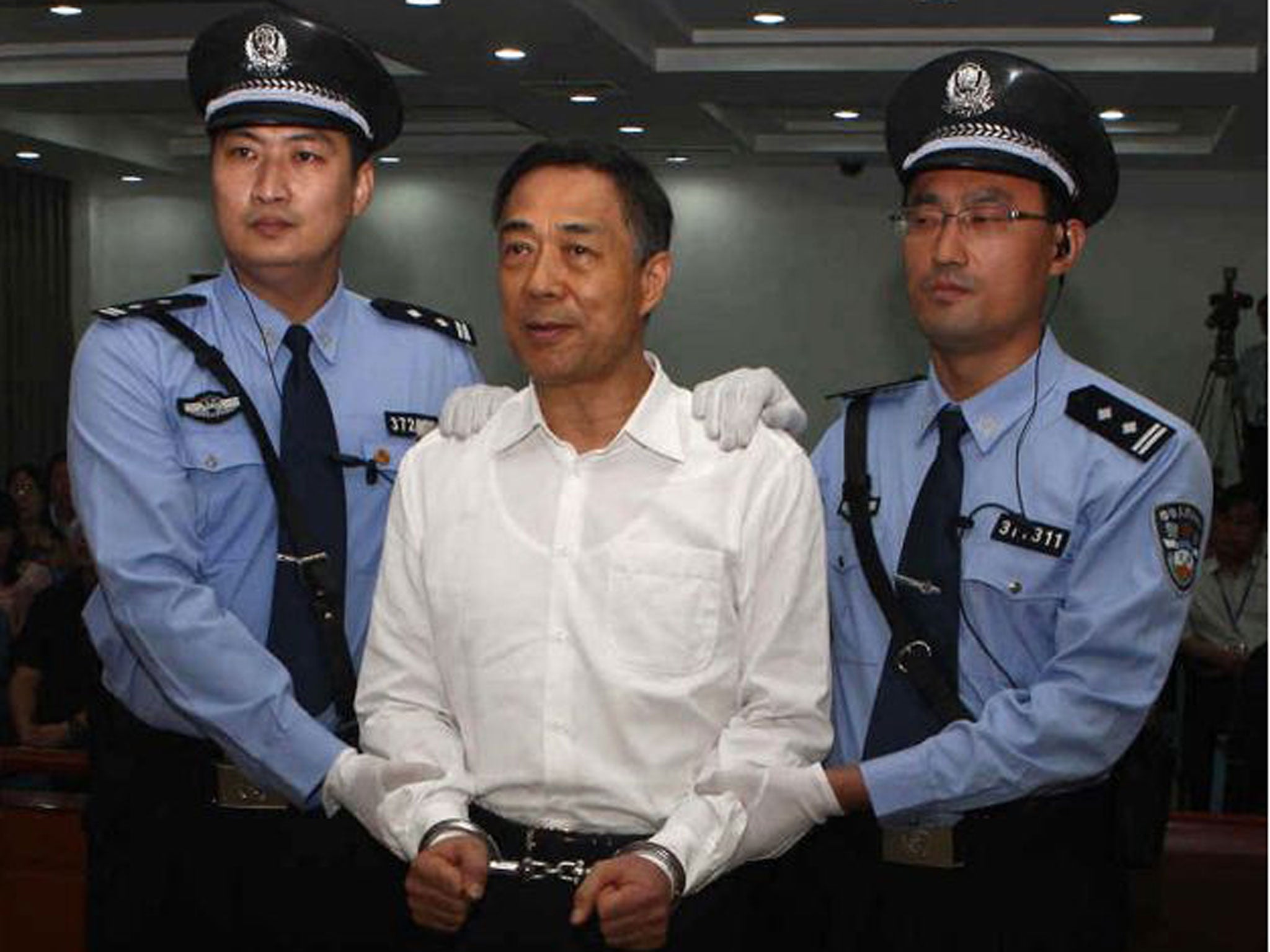Bo Xilai’s life sentence allows China’s leadership to put scandal to rest
The populist politician had enemies in high places, but importantly some supporters too

Bo Xilai was led away in handcuffs on Sunday after a court sentenced the one-time rising star of the Communist Party to life in prison for corruption, bringing down the curtain on China’s biggest political scandal in decades.
The Jinan Intermediate People’s Court also deprived Bo of his political rights for life and confiscated all his personal assets.
While Bo is likely to appeal, the verdict brings to an end the career of one of China’s most high-profile populist politicians, who previously served as the Communist Party boss in the south-western city of Chongqing and the mayor of the rich coastal city of Dalian.
He looked destined for the very top until he suddenly disappeared from public view in April last year, following accusations that his wife, Gu Kailai, had poisoned her business partner, the British man Neil Heywood.
Gu Kailai was found guilty earlier this year, and Bo was eventually convicted of attempting to cover up her crime and of taking 27 million yuan (£2.75m) in illegal payments from prominent tycoons.
He mounted a spirited defence of his business and political dealings in court, denying all charges of embezzlement, bribery and corruption.
While Bo is clearly not expecting a reversal of the verdict under the current political setup, he may well be betting on the system not surviving for long, according to Steve Tsang, of the China Policy Research Institute at the University of Nottingham. If it collapsed, his courageous public defiance should put him in a better position, Mr Tsang said.
There had been some speculation that Bo would be executed, as a way of permanently removing him as a threat to the current leadership. However, he has lingering support within the upper echelons of the Communist Party and it is unlikely they would have tolerated the killing of one of their own.
Kerry Brown, a professor of Chinese politics at the University of Sydney, said in a commentary for the BBC: “Despite the great exception of Deng Xiaoping, who came back from the political graveyard three times, he is highly unlikely to ever emerge again as a leader.
“With Bo Xilai’s demise, the Communist Party of China has lost the most talented politician of his generation.
“It is a bit like the UK Labour Party dismissing Tony Blair just before 1997 when it stood to win the election that year. Bo’s charisma and his natural political gifts put him in the same league as these figures.”
Bo is more likely to suffer the same fate as other high-level figures who have fallen from favour, such as the late mayor of Beijing, Chen Xitong, who was toppled in the late 1990s, and the former party leader Zhao Ziyang, who was ousted for talking to the student leaders ahead of the Tiananmen Square massacre in 1989.
President Xi Jinping has used the case to signal his determination to push through anti-corruption measures.
The party is also likely to use the trial as a demonstration of how China’s rule of law is a force to be reckoned with, although outside China it is unlikely to be seen as a triumph of justice.
There was lingering support for the purged politician on China’s popular social media sites.
Bu Neng Xiao Yu wrote on the Sina Weibo microblogging service: “I have lived in Chongqing for 10 years and I experienced what he did for Chongqing people. Leaving his own crimes aside, I feel it’s really not worth it to have such a wife.”
Bo is likely to serve his sentence at the Qincheng prison near Beijing, which is seen as a relatively soft option, with no uniforms, adequate living space and medical facilities.
Cui Wenlong wrote on Sina Weibo: “I heard that the cost of everyday meals [inside the prison] is 200 yuan, which means 6,000 yuan a month. The average salary in Beijing is only 5,000 yuan.”
Subscribe to Independent Premium to bookmark this article
Want to bookmark your favourite articles and stories to read or reference later? Start your Independent Premium subscription today.

Join our commenting forum
Join thought-provoking conversations, follow other Independent readers and see their replies